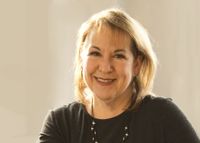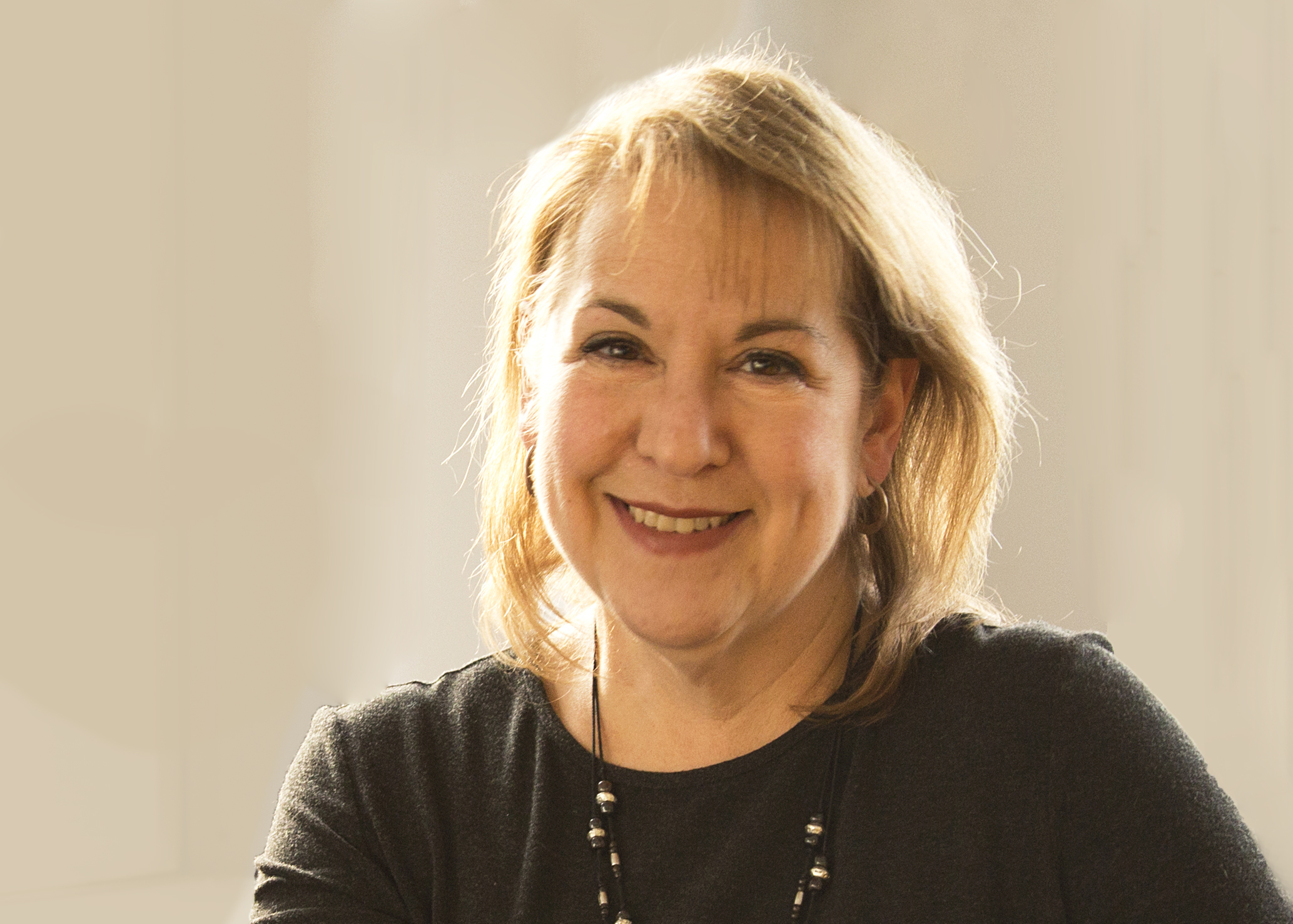A Retirement Guide for Solo Agers
If you’re single without adult children to rely on for help, planning for your older years requires an added layer of intention and urgency.


Profit and prosper with the best of Kiplinger's advice on investing, taxes, retirement, personal finance and much more. Delivered daily. Enter your email in the box and click Sign Me Up.
You are now subscribed
Your newsletter sign-up was successful
Want to add more newsletters?

Delivered daily
Kiplinger Today
Profit and prosper with the best of Kiplinger's advice on investing, taxes, retirement, personal finance and much more delivered daily. Smart money moves start here.

Sent five days a week
Kiplinger A Step Ahead
Get practical help to make better financial decisions in your everyday life, from spending to savings on top deals.

Delivered daily
Kiplinger Closing Bell
Get today's biggest financial and investing headlines delivered to your inbox every day the U.S. stock market is open.

Sent twice a week
Kiplinger Adviser Intel
Financial pros across the country share best practices and fresh tactics to preserve and grow your wealth.

Delivered weekly
Kiplinger Tax Tips
Trim your federal and state tax bills with practical tax-planning and tax-cutting strategies.

Sent twice a week
Kiplinger Retirement Tips
Your twice-a-week guide to planning and enjoying a financially secure and richly rewarding retirement

Sent bimonthly.
Kiplinger Adviser Angle
Insights for advisers, wealth managers and other financial professionals.

Sent twice a week
Kiplinger Investing Weekly
Your twice-a-week roundup of promising stocks, funds, companies and industries you should consider, ones you should avoid, and why.

Sent weekly for six weeks
Kiplinger Invest for Retirement
Your step-by-step six-part series on how to invest for retirement, from devising a successful strategy to exactly which investments to choose.
The nightmare scenario for many people growing older on their own — a medical crisis in the middle of the night — happened to Jackson Rainer over the summer. Nagging stomach pain turned so excruciating that he couldn’t wait for an ambulance to get to his high-rise apartment in Atlanta. So he drove himself to the hospital and was immediately admitted. Three days later, his colon ruptured, necessitating surgery to remove his large intestine.
Rainer, 70, faces months of recovery and adjustment to a new diet and lifestyle. Yet the semiretired clinical psychologist, whose wife of 38 years died in 2016, says, "I am just as fortunate as I can be."
What Rainer, who doesn’t have children, feels grateful about is his circle of close friends, who sprang into action as news of his illness spread. They secured his apartment and his second home in Tryon, N.C., paid his bills, made medical decisions on his behalf when he could not, and remained by his bedside during his three-week hospital stay. Once home, they did his grocery shopping, bought clothes to accommodate his 40-pound weight loss, and planned future activities, such as visiting museums, that wouldn’t involve eating. As his strength and ability have returned, he says, they’ve gradually and graciously started returning the reins of his life back to him.
From just $107.88 $24.99 for Kiplinger Personal Finance
Become a smarter, better informed investor. Subscribe from just $107.88 $24.99, plus get up to 4 Special Issues

Sign up for Kiplinger’s Free Newsletters
Profit and prosper with the best of expert advice on investing, taxes, retirement, personal finance and more - straight to your e-mail.
Profit and prosper with the best of expert advice - straight to your e-mail.
"Not one of these people shares my DNA, but they have been right here with me," Rainer says. "As a solo ager, you learn to be self-reliant, but it’s also critical to make an effort to create a community that is supportive. I’m humbled every day by mine."
Like Rainer, an estimated 15 million Americans aged 55 and up are growing older on their own, without a spouse or children they can count on for support, according to the U.S. Census Bureau. When you include people who live alone and are estranged from their kids or can’t depend on them or other close relatives as they age, the numbers swell to about one-third of people 50 and older, AARP reports. And millions more who are married without children will be on their own one day when their spouse dies.
Planning for retirement when you’re on your own is in many ways like the planning you would do in any other situation. You need to manage your money so you can cover your expenses over your lifetime and arrange what happens to your remaining assets after you die. You have to sort out where you’ll live and how you’ll manage if your health falters.
What’s different for solo agers is not the tasks themselves but rather some of the solutions and the urgency with which you need to put them in place, experts say.
"Intentionality is key when it comes to your money, your health care, and your quality of life, because as a solo ager, there is no one to manage these things for you but you," says Ailene Gerhardt, a certified senior adviser and founder of Navigating Solo, a resource clearinghouse for people growing older on their own.
Here’s what experts and solo agers who have planned ahead suggest.
Find your 'peeps'
Many solo agers are content living alone as they age, prizing their independence and freedom, according to a 2023 AARP study. But they also express more concern than other older adults about who will step up if they need help and whether their wishes regarding their health, money and home will be honored — or even understood.
"The number one question on the minds of people growing older alone, especially those who have experience caring for parents or other relatives themselves, is, 'Who will do this for me?'" says Joy Loverde, author of "Who Will Take Care of Me When I’m Old?"
At a minimum, you need to formally identify a primary contact and one or two backups you trust to make health care and financial decisions on your behalf if you become incapacitated. Solo agers commonly pick siblings for these roles — a less-than-ideal choice, experts say, if the brother or sister is close to your age and so will face similar challenges when it comes to growing older.
"Look first to your extended family to see if there is someone a generation younger who might be suitable — maybe a niece, nephew or younger cousin," says solo aging expert Sara Zeff Geber, author of "Essential Retirement Planning for Solo Agers." Whoever you pick, Geber adds, make sure you talk with them first to check that they’re comfortable assuming the role.
You also need people you can rely on for day-to-day tasks that come up — someone who can bring you groceries if you’re laid up, feed the cat if you have to stay in the hospital for a few days, be a second set of ears at a doctor’s appointment if you have a worrisome diagnosis. Building those relationships now is key, whether through faith-based groups, book clubs, senior centers or making an effort to know your neighbors. The goal is to make these connections before you’re in crisis mode, not just because you’ll need help then but also for companionship now, to stave off the loneliness that many solo agers say they feel.
Lawrence Weiss, CEO of the Center for Healthy Aging in Reno, Nev., knows that well, from a personal and professional standpoint. Single now with no kids after two divorces and the end of a third long-term relationship, Weiss, 78, relied on his exes, with whom he’s still friends, for help recently after he injured his head in a fall. Now he’s trying to expand his circle through Connections Central, an organization that hosts regular meet-ups of small groups for coffee and conversation, to develop deeper relationships.
It’s a path that Jack Rainer has been following for years, building what he terms his FAR Circle, short for Friends and Relatives. Mostly, though, he just calls them his “peeps” — a group of people who have pledged to be there for each other, whenever they need help and whatever kind of support is warranted.
“As a psychologist, I’ve learned that men in particular need to learn to be the one to take the first step, do the inviting, put the energy into building relationships,” Rainer says. His advice? “Reach out, be generous, find your altruism and give of yourself.”
Document your wishes
Once you’ve identified people for key roles, give them the legal authority to act on your behalf, if needed.
That means putting in place key estate planning documents such as a health care proxy and durable power of attorney, which allow people you designate to make medical and financial decisions for you, and an advance directive that spells out your wishes regarding medical treatment. Also important: a HIPAA release allowing health care providers to share your medical information and a will or trust to direct the disbursement of your assets after you die.
“A traditional estate plan with these legal documents is a solo ager’s first line of defense, to ensure what they want to happen to them is what actually happens,” says certified financial planner Rob Lyman, president of Johnson Lyman Wealth Advisors in Los Altos, Calif.
Lyman also recommends writing a personal letter of instruction that lays out details such as the location of key documents, financial account numbers and log-in information, how you want pets and plants cared for, and health information that’s important for your designees to know. “It’s not legally binding, but it makes it much easier for the people you’ve entrusted to carry out your wishes,” Lyman says.
Yet, despite the importance of drawing up estate planning documents such as a will, trust or advance directive, only four in 10 solo agers have done so, according to AARP.
Count Karin Edelson, 61, among them. Divorced with no children, the recently retired middle school English teacher from Royal Oak, Mich., is currently sharing care for her mother, who has Alzheimer’s, with her brother. “We’re on our second parent with Alzheimer’s, which worries me greatly about what the future looks like for me,” says Edelson. “As a single person with no kids, I don’t want to leave anything to chance.”
Toward that end, Edelson has drawn up a will and trust, advance directives, and a health care proxy and power of attorney, naming her sister, brother-in-law and adult nieces to the necessary roles. She has also written a detailed letter of instruction, down to who gets her Cartier watch and her desire to be taken to Switzerland, where death by lethal injection is legal, if she develops dementia — and she has talked to her nieces to make sure they think they could carry out her wishes, if called upon.
“I hope I’ve left a very easy path for everybody,” says Edelson. “I don’t want to put the burden of decision-making on anybody else.”
Explore housing options
Six out of 10 solo agers worry that they won’t be able to stay in their homes as they get older, according to AARP. Most have not even considered other arrangements, such as a senior living community, that could provide more support if needed.
That could be a mistake, Geber says. “People often believe aging in place is easier and cheaper than other living arrangements, but that’s often not the case,” she says, when you consider the cost of services you may need as you get older, from snow removal and yard maintenance to home health care if you develop a chronic illness.
Adds Loverde, “Your choice of housing has everything to do with creating a support system as you age. A living environment that includes other people, known as a community setting, can solve a multitude of challenges for solo agers.”
For Ellen Fair, 72, the decision to move to a life-plan community in Sleepy Hollow, N.Y., which provides assisted living, skilled nursing and memory care on-site if needed, was a no-brainer. Her mother had a catastrophic stroke at 74, and Fair and her sister spent years caring for their stepmother as her health failed until she died in 2023. “I’m keenly aware that where the need for late-life care is concerned, it’s not a matter of if, but when,” says Fair, a former managing editor for various magazines who currently lives in New York City.
A bequest from her stepmother is making the move possible. Fair signed the contract in August for a two-bedroom apartment, plunking down nearly $1 million in entrance fees, which include coverage of lifetime care as needed; she’ll also pay a monthly fee of about $8,000, which includes access to amenities such as dining services, a pool, fitness center, educational programs, a community garden and housekeeping.
“It’s eye-poppingly expensive,” says Fair. “But if I’d had the money, I’d have moved sooner. It’s a weight lifted to know everything is taken care of.”
Life-plan or continuing care retirement communities like the one Fair chose are typically the most comprehensive and costliest housing arrangement. Another community setting that might appeal: the Village to Village Network (vtvnetwork.org), a membership organization in neighborhoods across the country in which older residents live independently but have access to volunteer-provided services such as transportation, technology support, social events, and help with light repairs.
You could also look into naturally occurring retirement communities (NORCs), which are apartment buildings or housing complexes that organically, rather than by design, have many older residents; neighbors often help each other out, and many NORCs have programs and services for seniors. Other options include 55-plus communities, shared housing (à la The Golden Girls), and co-housing communities, in which residents live in private homes but share common spaces and management, to foster neighborly support and interaction.
Know what you can afford
Without child care, orthodontia and tuition bills to pay, many solo agers are better off financially when they reach retirement than parents are. A Pew study last year found that among adults age 50 and older, those without children had a net worth 20% higher than parents of the same age — and bigger retirement accounts as well.
For other people growing older alone, though, getting by on one income instead of two and shouldering household expenses on their own is tough.
“What we’ve found is a deep split among solo agers, between people who have done very well with their finances and others who struggle to make ends meet,” says CFP Jay Zigmont, CEO of advisory firm Childfree Wealth, in Mount Juliet, Tenn., and founder of Childfree Trust, an estate-planning and fiduciary service.
To get a firm handle on where you fall on the spectrum, consider meeting with a financial adviser, if you don’t already work with one, to review your income and assets so you can better understand what you can comfortably afford.
Sandi Kane, 74, a retired team-development manager in the tech industry, suggests having the adviser model scenarios based on options you are considering — say, if you’re weighing a move to a life-plan community or to a 55-plus community. “This information gives additional peace of mind as you consider the future and will help inform your decision,” says Kane, who has been divorced twice and doesn’t have children.
Without the safety net of a second income stream from a spouse’s Social Security benefits, pension and retirement portfolio, you want to spend cautiously. But since you may not care about leaving an inheritance for anyone, you don’t want to be overly frugal either.
Karin Edelson, the retired English teacher, has tried to straddle the line between the two. “I’ve always been very careful with money — almost neurotically careful,” she says. “I don’t buy things I can’t afford. I saved as much as I could while I was working. I invested well and have a good amount put away.”
Edelson also started a sideline tutoring business that she still maintains, using that income to pay for travel, so she doesn’t dip into retirement savings. “Financially, I don’t worry at all,” she says.
Let the pros help
You may be living alone as you age, but you don’t have to go it alone. An army of professionals are waiting in the wings to lend a hand.
Struggling to identify someone to be your health care proxy and power of attorney? A professional fiduciary may be able to fill that void. Currently, Arizona and California are the only states that license and regulate professional fiduciaries, but you may be able to replicate some of their services. Zigmont’s Childfree Trust, for example, works with bank trust departments to provide next-of-kin services nationally. If you have sizable assets, a bank trust department may provide this service.
Four in 10 solo agers worry about needing help with everyday money management. A daily money manager can assist with bill paying, budgeting, organizing tax documents and other routine financial tasks; some also provide fiduciary services (see the box below for more info on these and other helpful pros).
Meanwhile, certified senior advisers and senior care managers can help identify community resources for health care and housing options; coordinate medical appointments; arrange transportation; and, in some cases, advocate on your behalf in terms of medical needs. Elder law attorneys draw up essential estate-planning documents and provide guidance about what’s needed and who to pick for key roles.
Retired human resources executive Viola Lucero, 76, has worked with a few professionals recently to put a comprehensive plan in place for herself and her husband, Tom, 76, a former customer-satisfaction consultant. The couple has no children, and with Tom’s health in decline from Parkinson’s disease, Lucero felt a growing sense of urgency. Although healthy now, she says, “I worry something will happen to me and he will be left.”
So Lucero has engaged a professional fiduciary to act as their power of attorney if she cannot, and to be an alternate health care proxy as well (her sister and niece are the primary designees). She has also worked with a lawyer to update their estate plan and recently moved to a continuing care community in Rohnert Park, Calif. Says Lucero, “I’m trying to be as proactive as possible, knowing that aging is upon us, and lives change in a nanosecond.”
But trying to tackle all the different aspects of solo aging at once can be overwhelming. “Just take things piece by piece,” Gerhardt advises. “It may take years to put together a comprehensive plan you’re comfortable with.”
Amy Stein-Milford, director of on-site and special programs at DOROT, a New York City social services agency that offers an online program for solo agers, agrees. “One of our mantras is just take that first step.” Another, she says, is to recognize that, while you may be a solo ager, you are not alone. “You’re in good company,” she says. “There are literally millions of other people out there who are aging alone as well.”
Note: This item first appeared in Kiplinger Personal Finance Magazine, a monthly, trustworthy source of advice and guidance. Subscribe to help you make more money and keep more of the money you make here.
Related content
Profit and prosper with the best of Kiplinger's advice on investing, taxes, retirement, personal finance and much more. Delivered daily. Enter your email in the box and click Sign Me Up.

An award-winning financial journalist and editorial leader, Diane Harris is currently deputy editor of Kiplinger Personal Finance, where she helps direct the magazine’s coverage of retirement, savings, taxes, credit, financial planning, family finance and other core personal finance topics.
With more than three decades of magazine and digital journalism experience, Harris is the former deputy editor of Newsweek, as well as the former editor-in-chief of Time Inc.’s Money magazine. Her work has also appeared in The New York Times, TIME magazine, AARP the Magazine and AARP.com among other publications.
-
 Dow Loses 821 Points to Open Nvidia Week: Stock Market Today
Dow Loses 821 Points to Open Nvidia Week: Stock Market TodayU.S. stock market indexes reflect global uncertainty about artificial intelligence and Trump administration trade policy.
-
 Nvidia Earnings: Live Updates and Commentary February 2026
Nvidia Earnings: Live Updates and Commentary February 2026Nvidia's earnings event is just days away and Wall Street's attention is zeroed in on the AI bellwether's fourth-quarter results.
-
 I Thought My Retirement Was Set — Until I Answered These 3 Questions
I Thought My Retirement Was Set — Until I Answered These 3 QuestionsI'm a retirement writer. Three deceptively simple questions helped me focus my retirement and life priorities.
-
 I Thought My Retirement Was Set — Until I Answered These 3 Questions
I Thought My Retirement Was Set — Until I Answered These 3 QuestionsI'm a retirement writer. Three deceptively simple questions helped me focus my retirement and life priorities.
-
 How You Can Use the Financial Resource Built Into Your Home to Help With Your Long-Term Goals
How You Can Use the Financial Resource Built Into Your Home to Help With Your Long-Term GoalsHomeowners are increasingly using their home equity, through products like HELOCs and home equity loans, as a financial resource for managing debt, funding renovations and more.
-
 How to Find Free Money for Graduate School as Federal Loans Tighten in 2026
How to Find Free Money for Graduate School as Federal Loans Tighten in 2026Starting July 1, federal borrowing will be capped for new graduate students, making scholarships and other forms of "free money" vital. Here's what to know.
-
 We've Reached Our $5 Million Retirement Savings Goal, but at 66, My Husband Still Doesn't Feel Ready.
We've Reached Our $5 Million Retirement Savings Goal, but at 66, My Husband Still Doesn't Feel Ready.We are 66 and have reached our retirement savings goal. Our plan is to travel, but my husband can't seem to let go of work.
-
 Aging in Place Can Be Bad for Your Health: This Financial Pro's Alternative Is a No-Brainer
Aging in Place Can Be Bad for Your Health: This Financial Pro's Alternative Is a No-BrainerWhy age alone in financial hardship when you can enjoy companionship — and share the costs of housing, groceries and health care — with a small community of friends?
-
 When It Comes to Retirement Planning, Be More Spock Than Scotty: It's Logical, Captain
When It Comes to Retirement Planning, Be More Spock Than Scotty: It's Logical, CaptainIf you're worried about your retirement, address the concerns in a logical sequence, talk honestly with your team and prepare to go boldly into the future.
-
 A 5-Step Guide to Getting AI to Give You Actionable Insight Rather Than Polished Nonsense
A 5-Step Guide to Getting AI to Give You Actionable Insight Rather Than Polished NonsenseAI can be a powerful specialist, but it can sound smarter than it is when it comes to understanding real-world stakes. That means you have to be the strategist.
-
 5 Side Gigs That Let You Travel the World in Retirement
5 Side Gigs That Let You Travel the World in RetirementEarn as you explore: High-flexibility side gigs that enable retirees to blend work and travel in 2026.